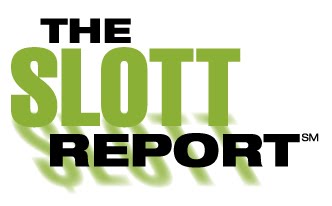We re-printed the question below so others can see many teachers or school administrators coming upon retirement are asking the same questions.
1.
Hello Ed and Associates,
I am retiring with 40 years with Columbus City Schools. I have unused vacation/sick pay (‘severance pay’), soon to have a “present value” of approx. $70,000.00. The school indicates that this sum, may be payable as tax deferred, or, in a direct, taxable ‘lump sum’ check, but that it MUST be funded into the school’s short list of ‘chosen annuity providers’. I want to receive the money into a tax deferred vehicle. I am 62 years of age.
Question: Since the money used to pay this severance is currently held in the general fund of the Treasury of the Columbus City Schools, and since the client is beyond age 59 ½ and severing employment with the school, may it be directly paid/rolled over into a Rollover IRA? Compare/contrast this to having the check received/deposited into a 403(b)...
I do not understand with clarity, what are the client/retiree’s rights (or lack thereof) to bypass deposit into a 403(b), and going directly into a Rollover IRA. It would seem to me that since this sum of money is not part of routine payroll contributions to a 403(b), then IRS Publications 571 and 590 would permit the direct funding of this severance into a rollover IRA. I wonder if the school’s Treasury department just doesn't understand the IRS rules, or am I the one who is mis-understanding something?
Thanks,
Mick Zwayer
It is very difficult yo provide an accurate answer to your question. Please pose your question to someone knowledgeable at the Columbus City School. Each of these type of plains are different so a general rule might not apply.
2.
If I leave my $2.4 MM IRA to my children 43 & 51, and my grandchildren 24,22, 20, do they take it out over their individual lifespans, or what lifespan do they take it out over. Can the older ones take it over their lifespans & the younger ones take it out earlier while their tax rates are so low?? How do I get my answer. Thank you for ALL your help which I sometimes get in the WSJ and spots on the radio.
Helen
Answer:
If your grandchildren are your primary beneficiaries of your traditional IRA at your death they can inherit your IRA balance, minus the current required minimum distribution if any. By December 31st of the year following your death they will want to split the account into thirds. This will allow each grandchild to use their own life expectancy factor, based on the age, for their required minimum distribution commencing a year after your death. The title of the split accounts should read:
Your name, deceased, date of death, for the benefit, name of grandchild.
This should be done for each account for the grandchildren.
3.
In 2010, I will be age 70 1/2, still working and own greater than 5% of my company. I realize that I will have Required Minimum Distributions from my SEP-IRA as well as my 401K accounts, but not from my Roth IRA account held longer than 5 years. My question regards contributions: In 2010, will I still be allowed to make contributions to my SEP-IRA as well as my 401-K accounts?
Thanks,
Jared
Answer:
As long as you are still working and over age 70 1/2 you can continue to contribute to employer plans, when all the contribution requirements are met, even if you are also required to take distributions from the plan.

0 comments:
Post a Comment